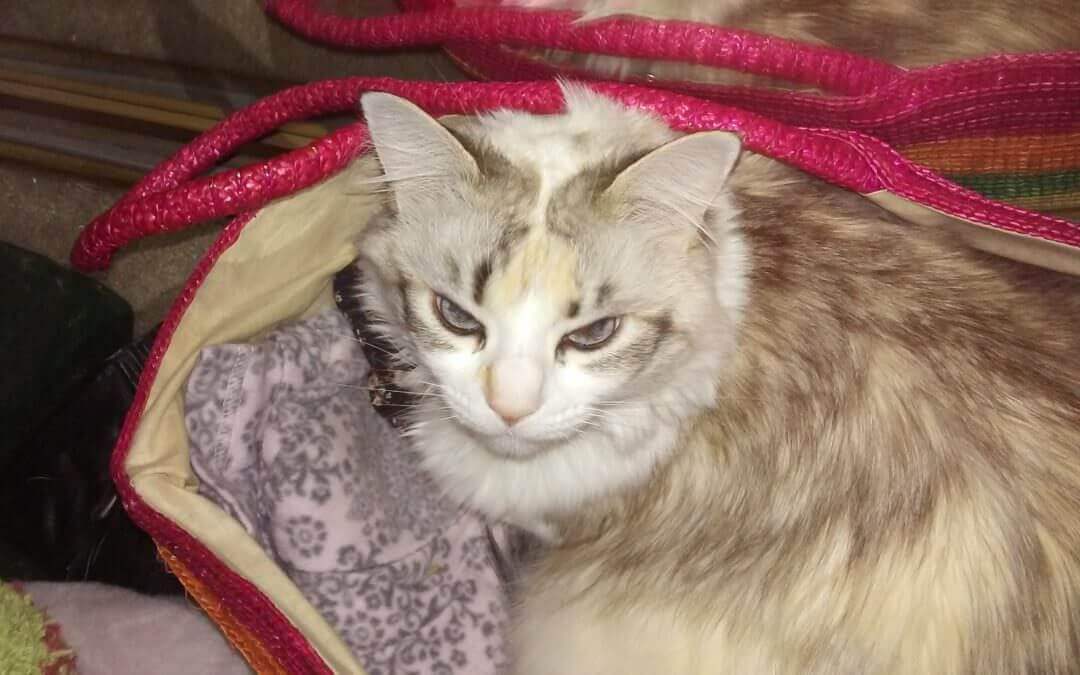FROM: THE SACRAMENTO CAT HOSPITAL
FELINE HYPERTHYROIDISM ~
Feline hyperthyroidism is a common disorder of the endocrine system. The endocrine system encompasses a number of glands, including the thyroid, adrenal, and pituitary, which secrete hormones directly into the bloodstream.
There are two thyroid glands located in your kitty’s neck. With feline hyperthyroidism, one or both of the glands enlarge and overproduce thyroid hormones (known as T3 and T4), which in turn will increase your kitty’s metabolism. As the thyroid glands become more active, they may remain benign or develop malignancies. Fortunately, most cases of hyperthyroidism fall into the benign category. Hyperthyroidism is most often seen in older cats, typically 10 years of age or older.
Symptoms of hyperthyroidism can include weight loss despite a ravenous appetite, frequent bowel movements, vomiting, diarrhea, increased thirst and urination, restlessness, frequent crying or vocalization, poor grooming habits, and rapid heartbeat.
Hyperthyroidism is typically diagnosed by first conducting a complete physical exam; some of the most common findings are weight loss, dehydration, and the presence of a heart murmur. In some cases, your veterinarian will be able to feel a lump or enlargement on a thyroid gland. To confirm the diagnosis, blood tests are recommended to measure the levels of thyroid hormone in your kitty’s blood.
If your kitty is diagnosed with the benign version of hyperthyroidism, we may prescribe the medication Tapazole (also known as Methimazole), which helps suppress the production of excessive thyroid hormone. To help keep the disease under control, the medication may be needed for the duration of your kitty’s life. Periodic blood tests and recheck examinations are important to help ensure that the medication dosage is effective. Radioactive iodine (I-131) therapy is another possible option for treating benign hyperthyroidism. The treatment is done in an effort to cure the disease process, but may cause serious side effects, and requires a cat to be hospitalized for 1 to 2 weeks. A feline prescription diet, Hill’s y/d, may be another option to help manage your kitty’s thyroid health. In the event of a malignant (cancerous) thyroid diagnosis, surgery and/or radiation therapy may be needed.
The treatment course that is best for your kitty depends on a number of factors, including his or her age and other possible medical conditions. If your kitty is diagnosed with hyperthyroidism, we’ll discuss all options with you, and help you make the best choice for your feline.
For additional information about feline hyperthyroidism, or if your kitty is displaying any of the symptoms noted above, please speak with one of our doctors.

